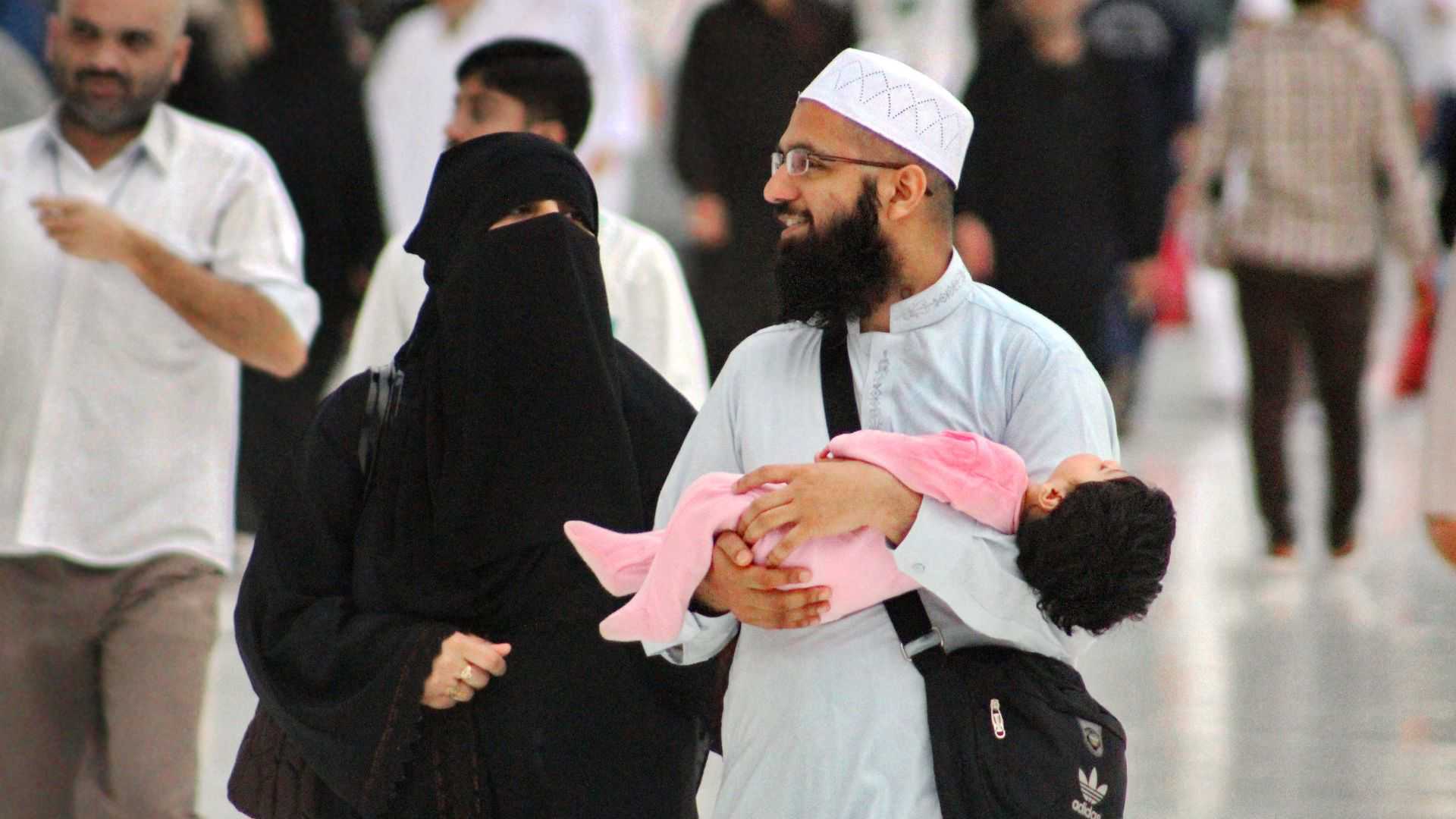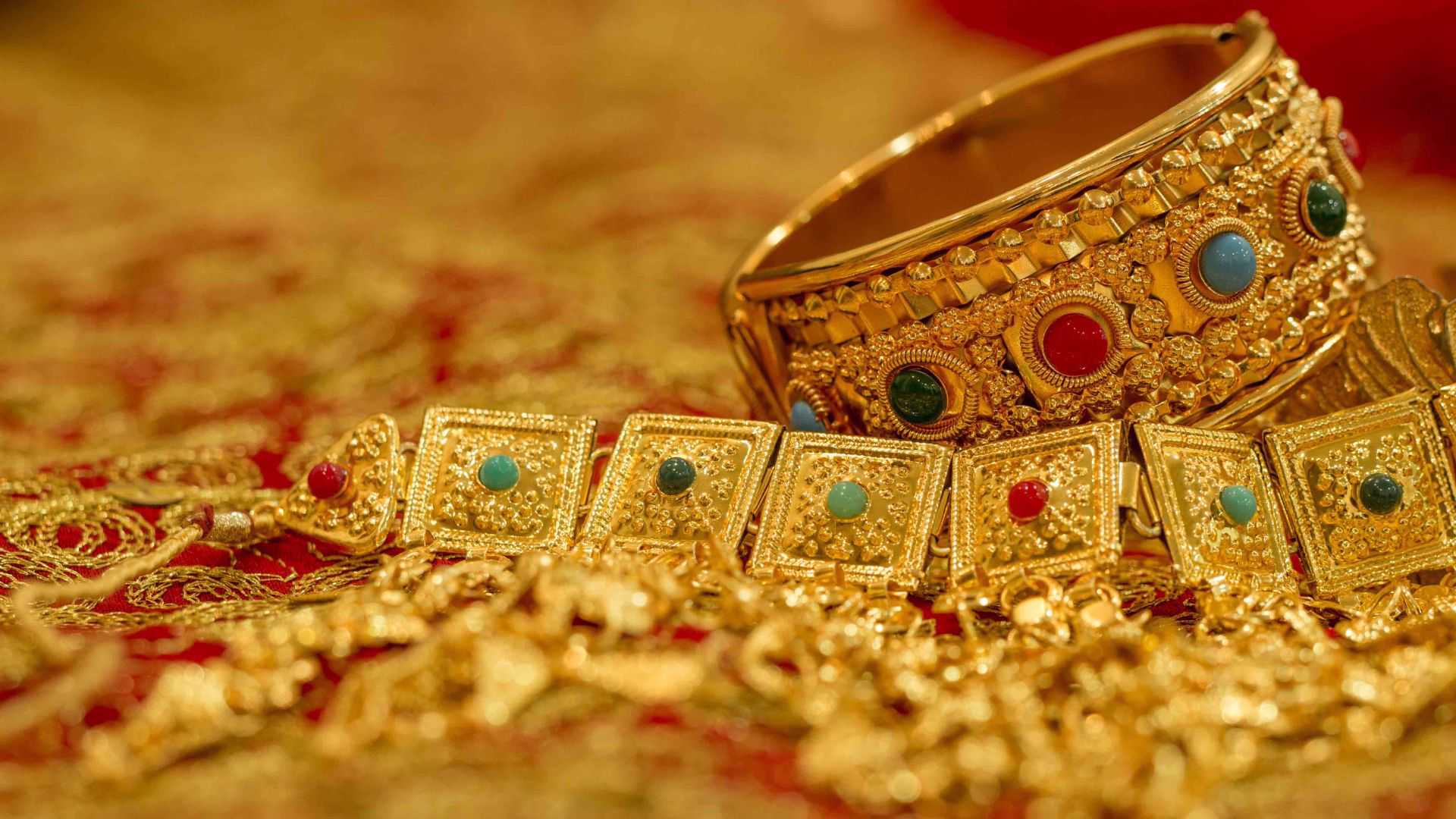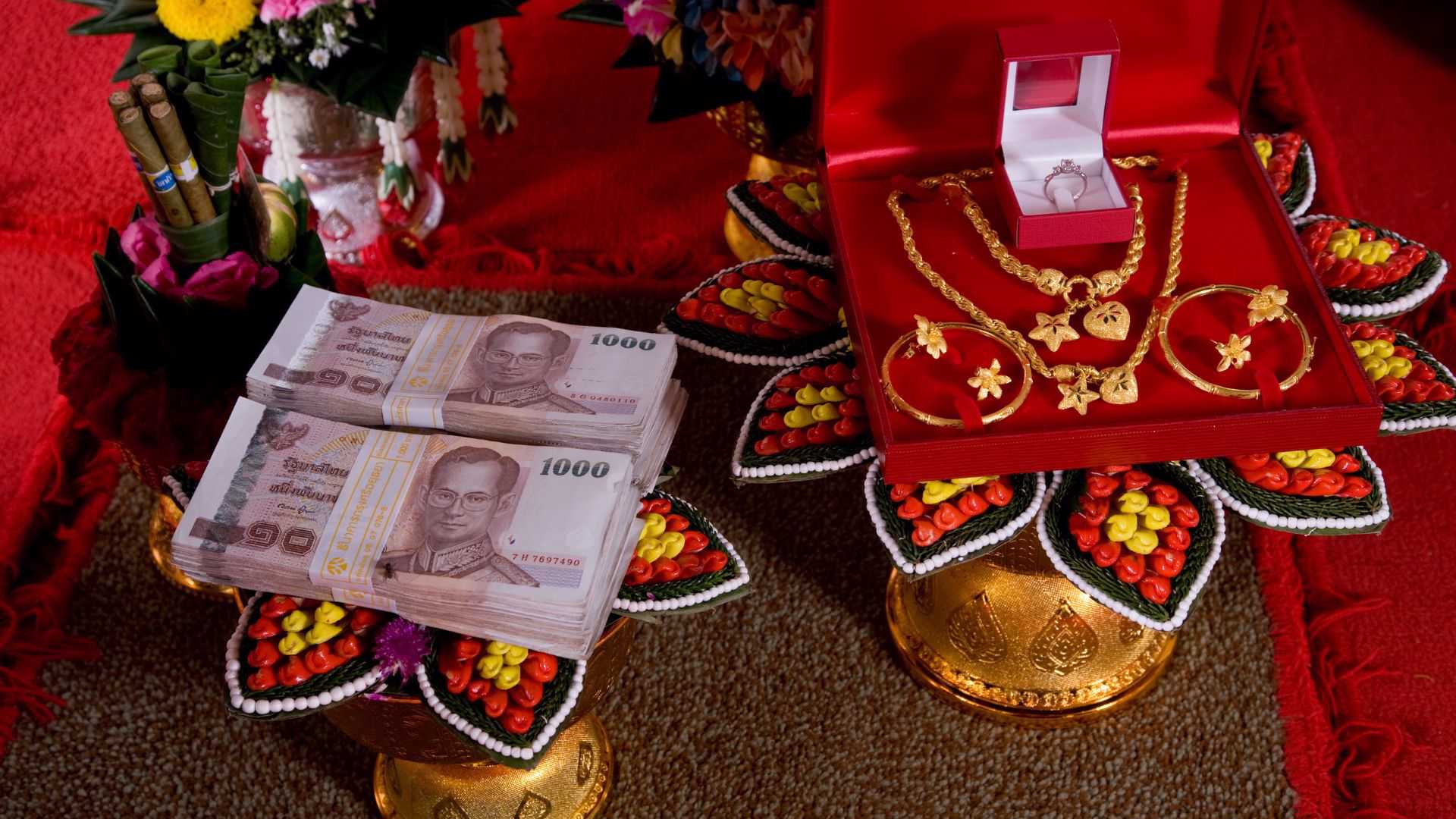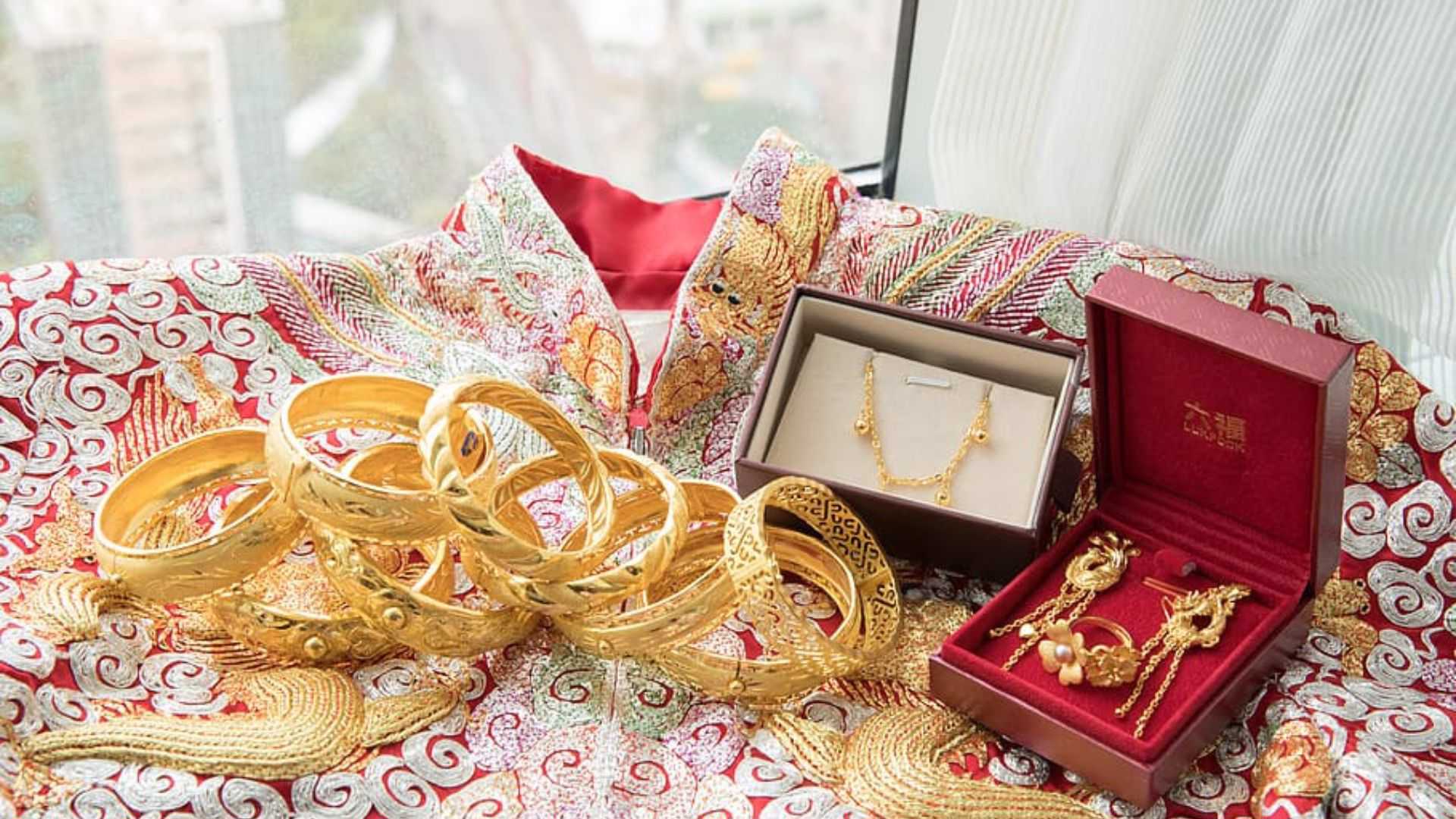Mahr (Maher) in Islam: In Islamic marriages, the concept of “Mahr” (or Meher/Mehr/Maher) holds profound importance. Mahr refers to the mandatory gift or dower given by the groom to the bride upon marriage. It is not merely a customary practice but a religious obligation deeply rooted in Islamic traditions. This article aims to shed light on the significance of Mahr in Islam, exploring its historical background, its purpose, and its impact on contemporary marriages.
What is Mahr?
The Mahr, which must be given by the husband to his wife at the wedding, is the customary present. The word for such a gift in Arabic is Mahr (Meher).
Before the wedding, the Muslim groom must first agree to a financial arrangement with the bride. Mahr is a financial arrangement that is given to her as a gift and is available for her to use however she sees fit. The girl can utilize the Mahr as protection if she does not have any belongings from her home. The parties usually enter into Mahr contracts in order to agree on the Mahr payment.
The choice of what to do with the money obtained in the form of Mahr is totally up to the wife.
Simply put, the wife must decide how to use the Mahr money she has been given. Nobody one except herself is allowed to take any part of it away from her. Even the rights to Mahr are not shared by the wife’s parents.
If the wife later asks for a divorce, she will give the Mahr back to the husband and obtain a Khula. The wife is typically allowed to keep the Mahr when a divorce occurs for unimportant grounds.
Allah says in Surah An-Nisa, verse 20:
“But if you want to replace one wife with another and you have given one of them a great amount (in gifts), do not take back from it anything. Would you take it in injustice and manifest sin?” [4:20]
Also, this hadith states: “You are not entitled to take back any money. If you have told the truth, the Mahr you paid was for having sexual relations with her lawfully”. [Sahih Bukhari].
Importance of Mahr
A few essential elements are present in nikah without which it would not be complete. One of these is the Mahr, which is a present given by the husband to his wife, whether material or intangible.
Allah says in the Quran,
“So marry the slave girls with their people’s permission. and give them their compensation according to what is reasonable.” [An-Nisa 4:25]
Even with their guardian’s approval, Allah made it obligatory for the latter to offer them anything when they got married to them. In the same way, Allah mandated Muslim men to continue providing for their wives’ basic needs such as food, clothes, housing, and maintenance after the marriage.
Historical Perspective of Mahr in Islam:
Mahr has been an integral part of Islamic marriage customs since the time of Prophet Muhammad (pbuh). The tradition of Mahr finds its roots in the Quranic teachings and the Prophet (pbuh)’s Hadiths. From the early Islamic era to the present day, Mahr has continued to play a crucial role in solemnizing Muslim marriages, reflecting the lasting commitment between the husband and wife.
Quranic and Hadith References to Mahr in Islam:
The Quran contains several verses mentioning Mahr, affirming its significance in Islam. For instance, Surah An-Nisa (4:4) states, “And give the women [upon marriage] their [bridal] gifts graciously.” This emphasizes the importance of providing a gift to the bride as an essential element of the marriage contract. Additionally, various Hadiths provide further insight into the Prophet Muhammad (pbuh)’s encouragement of giving reasonable and fair Mahr to brides, ensuring their financial well-being and dignity.
Purpose and Symbolism of Mahr in Islam:
Beyond its material value, Mahr holds profound symbolic meaning in Islamic marriages. It is a gesture of love, respect, and financial security from the groom to the bride. By giving Mahr, the husband demonstrates his commitment to care for and support his wife throughout their married life. In return, the bride accepting the Mahr symbolizes her acceptance of the marriage and the responsibilities that come with it.
Also Read: 10 Qualities of a Good Muslim Husband to Look for

Mahr, which must be paid to the bride in cash or other possessions, is a symbol of the husband’s responsibilities. The Mahr is recommended according to social standards rather than being fixed by law. Mahr assessments take place at the time of marriage or are postponed till later. The delayed Mahr is null and invalid in the event of divorce or death, nevertheless.
As Prophet Mohammed said,
“Surely Allah may forgive any sin on the Day of Resurrection save the sin of one who misappropriated the Mehr of a woman or the wages of a hired person, or who sells a free person (as a slave).”
How much Mahr in Islam:
Determining the appropriate Mahr amount is crucial in Islamic marriages. Islamic teachings emphasize fairness and reasonableness in this regard. Factors such as the financial capability of the groom, prevailing customs, and the welfare of the bride should be considered when setting the Mahr amount. It is essential to strike a balance between adhering to Islamic principles and respecting cultural practices.
Our Prophet [SAW] says,
“Go and look for something, even if it is a ring of iron.”
When the Prophet Muhammad officiated at or assisted in the weddings of his companions, he gave his approval for a wide range of Mahr, from a straightforward iron ring to a chunk of gold the size of a date stone to the knowledge of the Hadith and Quran.
Payment and Disbursement of Mahr:
The process of paying Mahr to the bride may vary based on cultural norms and local customs. Some couples choose to pay the Mahr in full during the marriage contract ceremony, while others may agree on deferred payments or installments. However, Islamic guidelines ensure that the Mahr directly benefits the bride, enhancing her financial security and well-being.
Mahr in Modern Times:
In contemporary society, Mahr can serve as a bridge between traditional Islamic values and modern perspectives on marriage. When practiced in line with Islamic principles, Mahr empowers women and promotes equality within the marital relationship. However, misconceptions and cultural practices sometimes deviate from the true essence of Mahr in Islam, requiring a reemphasis on its significance.
Legal Aspects of Mahr:
Mahr is not solely a religious tradition but also a legally binding aspect of the marriage contract in Islamic law. Its recognition in Islamic jurisprudence ensures the protection of the rights of both parties. In different countries, the enforcement of Mahr agreements may vary, but its significance remains consistent in the eyes of Islamic law.
Mahr and Women’s Rights:
Mahr plays a pivotal role in safeguarding women’s financial security and rights within the marriage. It acts as a mechanism for empowering women, ensuring they have a sense of agency and dignity within the marital relationship. In cases of divorce or the husband’s demise, Mahr provides a safety net for women, protecting their financial well-being.
Best Mahr in Islam
The Prophet Muhammad (PBUH) reportedly stated that the Mahr should be “one piece of gold” in a hadith. However, the bride and the groom’s parents or legal guardians (also known as Wali) come to an agreement on the Mahr amount. To determine the Mahr sum, the parties frequently draft Mahr contracts.
Mahr is the most essential criterion for Nikah, according to all the Hadith and verses of the Quran mentioned above. The bride’s right, or mahr, should be granted to her, and she is entitled to preserve it even if she gets divorced after the nikah.
Can Mahr be Gold?

The fundamental tenet is that the man must provide the woman the mahr that he agreed upon. It is OK if they come to an agreement on something different, or on more or less, because Allah states in the Quran (interpretation of the meaning):
“but if after a Mahr is prescribed, you agree mutually (to give more), there is no sin on you”
[al-Nisa’ 4:24]
Can Mahr be forgiven in Islam?
Only the wife herself has the power to lower the sum or, if she so chooses, forgive the complete amount of mahr!
If the husband is unable to pay the full amount, he may humbly ask his wife to take a reduced payment; alternatively, if he is totally unable to pay, he may sweetly and humbly ask her to forgive the debt. The husband will be released from his obligation if the wife agrees to his request and lowers or forgives the amount without being coerced, forced, or otherwise manipulated.
However, if the woman demands that the husband give her the promised mehr for any reason, he must fear Allah and give her the sum that they had previously agreed upon.
Difference between ‘Mahr’ and ‘Dowry’

Mahr literally means “dower,” however there are some key distinctions between the two words. Mahr is a legal principle in Islam that protects women’s financial security. Dowry, however, is a societal evil. The bride’s family is typically asked for dower by the bridegroom’s relatives as a gift for the union. Therefore, it should be highlighted that dowry and mahr are two distinct ideas. One promotes security, while the other is bad for society.
Conclusion:
Mahr in Islam represents much more than a bridal gift; it symbolizes love, respect, and commitment in marriage. Understanding the historical context, its symbolic meaning, and its relevance in contemporary times reinforces the beauty of this Islamic tradition. Embracing the true spirit of Mahr fosters a loving and fulfilling partnership, ensuring a harmonious and prosperous life together.
This was all about Mahr in Islam. Read more Islamic Blogs or Follow us on social media for daily Islamic reminders.






